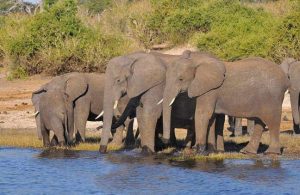
By Tulizo D. Malavanu
Introduction
Wildlife conservation entails protection, restoration of wild species and their habitats which enhances ecosystem connectivity.
Wild species are protected from habitat destruction, pollution, poaching, exploitation and overgrazing as well as the impacts of climate change.
Wildlife conservation in most areas of Africa involves communities found adjacent to the protected areas.
In this sense that is why there is Community based conservation which is the practice that promotes the engagement of local communities in attaining conservation success which also will provides benefits generated from all activities which come as a results of conserving wild species.
Why is it important?
Balance both the needs of people and wild species.
Maintain the population of wild animals.
Allows future generations to enjoy nature and to also learn how different species interact in the ecosystem.
Co-existence between communities and wild species, making people feel the ownership of natural resources.
Involvement of people in managing and controlling the resources.
Community Based Wildlife Conservation.
Involvement of the community in managing wildlife to enhance sustainability.
When communities are engaged in decision making on reserves nearby and also involved in the preparation of conservation policy documents, this creates the sense of ownership, a feeling of being valued and responsibility for conservation.
Benefits of Community based wildlife Conservation
Maintain sustainability through heritage knowledge from generation to another.
Community empowerment.
Development and improvement of social services in the community contribute to improved rural livelihood.
Environmental conservation.
Promote economic growth which is the redistribution of taxes generated from tourism.
Increase in densities of some wildlife animals.
Increase transparency and good governance on wildlife conservation and benefits derived from it.
Reduces human-wildlife conflict, which is a major challenge to most of the developing countries because as populations grow there is also more demand for agricultural land to enhance food security thus leaving no space for the wild.
Challenges of community based wildlife management
Conflict occurs when people’s livelihood is threatened, such as wildlife destroying crops which may lead to temporary injury or death to both wildlife animals and human beings due to constant clashes.
Another challenge is awareness of the community members on conservation issues (environment and wildlife), also social status within the community affects attitude of other people towards conservation.
Lessons learnt
For successful wildlife conservation, governments and conservationists are
supposed to maintain impartiality:
Communities and wild animals’ welfare should be considered equally important.
Concerns on human-wildlife conflict should be carefully handled and reduced by enhancing welfare of local communities and economic development. However, the need to balance the two sides, “biodiversity conservation and livelihood sustainability” is very crucial.
Give communities the power to decide and handle issues relating to wildlife conservation in their areas of concern.
Examples of good strategies on Community Based Conservation (CBC)
Zimbabwe, Namibia and Tanzania have been pointed as doing well on Community Based Conservation issues.
Some strategies that are used by these countries in enhancing sustainable wildlife conservation can help to inform other sub-Saharan African countries in decision making for their countries.
For example, Tanzania use the Wildlife Management Area (WMA) strategy which involves forming groups of villages surrounding the protected wildlife parks, where these villages provide land for wildlife conservation in return for the major share of tourism revenues for community development.
Tips for wildlife good governance:
Respond to current and future citizens’ needs and interest.
The decision considers adaptation to social and ecological change.
Incorporation of stakeholders perspectives in decision making.
Transparency on the benefits generated from wildlife resources.
Wildlife must provide sustainable ecological, economic, and recreational benefits.



